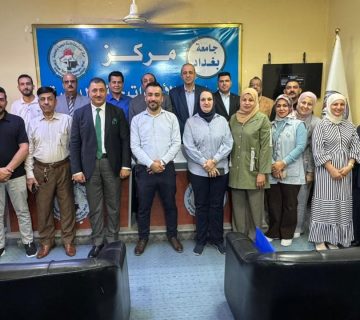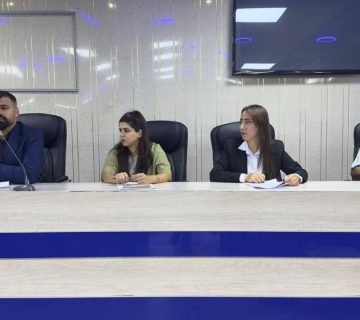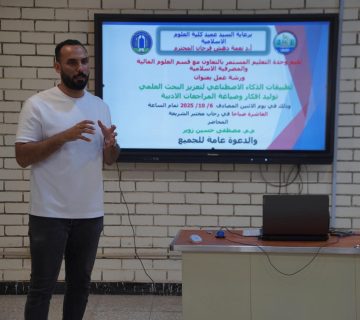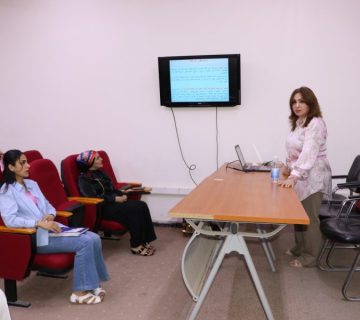Dr. Abdullah Dhaya, a faculty member in the Mechanical Engineering Department at the College of Engineering, has published a scientific research paper in the “Journal of Failure Analysis and Prevention” titled “An Experimental and Numerical Study on the Effect of Corrosion on the Fatigue Behavior of a Marine Ship’s Structure.” The study addresses the impact of corrosion caused by seawater on the fatigue limit and fatigue life of C35 carbon steel used in the construction of marine ship hull plates at the shipyard in Basra.
This study is considered a pioneering research effort in the field of analyzing the effect of corrosion on the fatigue behavior of marine ship structures. It highlights the significant role of corrosion in reducing the fatigue life of carbon steel used in this industry. The results provide a better understanding to improve the design and maintenance of marine ships, thereby enhancing their safety and operational efficiency. In this study, the researcher used five stress levels (200.7, 211.5, 220.7, 231.5, 240.7 MPa) to test the effect of corrosion on fatigue behavior. The simulations were conducted using laboratory-prepared artificial seawater for the fatigue and corrosion tests.
The results demonstrated that corrosion caused by seawater significantly reduces the fatigue life of C35 carbon steel, with the fatigue life decreasing by 70.15% for corroded samples compared to non-corroded samples. Additionally, the fatigue limit decreased, weakening the metal’s ability to withstand cyclic loads. To analyze these results, the numerical method was used through MATLAB to derive an estimation equation for predicting fatigue life and fatigue limit. The study showed that the derived predictive model is cost-effective and reduces sample testing expenses, as it requires only five samples for each experimental condition.










